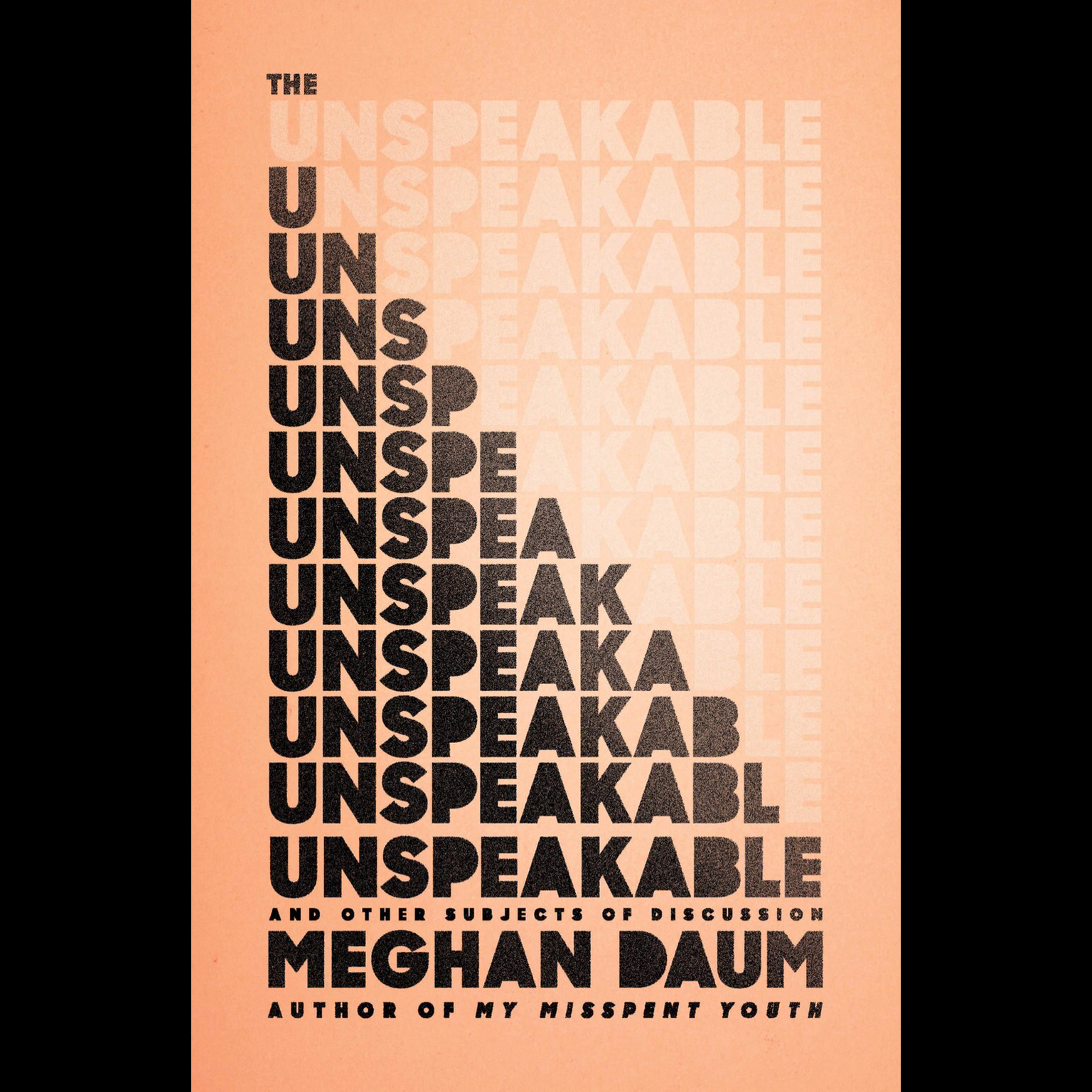Meghan Daum’s unsentimental approach to sentimental topics makes this book of essays an experiment in taboos.
by Kaylen Ralph
“In some respects, serving as my own main subject has been a great convenience,” writes Meghan Daum very early on her in new book, The Unspeakable (released 11/18 by Farrar, Straus and Giroux). It’s a premise easy enough to accept; if you’re a writer with at least a somewhat interesting life, and if you can write well, each day offers new fodder for your work.
Earlier this month, I had the opportunity to talk with Daum as part of our 2.5 Minutes series about the genre of confessional writing that she’s often associated with, and why she’s leery of categorizing her own work in that way. She told me that confession “means to sort of blurt out everything and sort of…not being thoughtful and being deliberate in what you’re talking about.” With The Unspeakable, Daum walks the walk of our talk. Her book isn’t simply filled with confessions. “Not even close,” she says. “They’re events recounted in the service of ideas.”
The main idea in The Unspeakable is sentimentality, but Daum flips the traditional notion of sentimentality – and the reactions and outlooks society deems appropriate for certain situations – right on its back. In describing the book early on, Daum writes that she would “say the essays covered a range of subjects—death, dogs, romance, children, lack of children, Joni Mitchell, cream-of-mushroom soup casserole, to name a few” but that she “hoped they’d add up to a larger discussion about the way human experiences too often come with preassigned emotional responses.”
The subjects themselves aren’t intrinsically unmentionable, but the way that Daum approaches them—unapologetically and full of candor—results in perspectives that many people might find taboo. Like, for example, how one should react after the death of a parent, especially if that parent is one that “some months earlier I had entertained a passing fantasy that (she) would get hit by a bus,” (although she comes to find how much she not only loves, but likes her, near the end of her mother’s life). Or about dating within the mindset of evaluating possible partners “less as potential life mates than as characters in a movie I happened to have wandered into.”
Although it’s not a dominant theme, Daum is nostalgic for her youth without—wait for it—getting sentimental about it. And this isn’t because, as a woman in her mid-forties, she feels as though she’s finally “arrived” after the struggle of her twenties (the impressiveness of Daum’s body of work might suggest that she has arrived, but that’s just my opinion). “I am nostalgic for my twenties,” she says, “but I can tell you for sure that they weren’t as great as I now crack them up to be.” In our society that glorifies youth and makes it not only possible, but also recommended, to hang on to the physical suppleness and novelty of one’s twenties, her perspective is counter-cultural.
Gravitas aside, The Unspeakable is an entertaining romp. There’s the essay about being an “honorary dyke” during a strictly experimental phase in her life, or the one where she goes into detail about her friendship with Nora Ephron and the dinner party she was invited to at her home (at which point every one of her readers will experience the same pangs of jealousy and wonderment that I did).
Despite being unsentimental, The Unspeakable packs quite an endearing punch.
[hr style=”striped”]
Kaylen is one of The Riveter’s co-founders and editors. She moved to Minneapolis, MN after graduating from the Missouri School of Journalism in August 2013. In addition to her editorial duties at The Riveter, Kaylen also works as a freelance researcher for The Sager Group. You can follow her on Instagram and Twitter at @kaylenralph.




